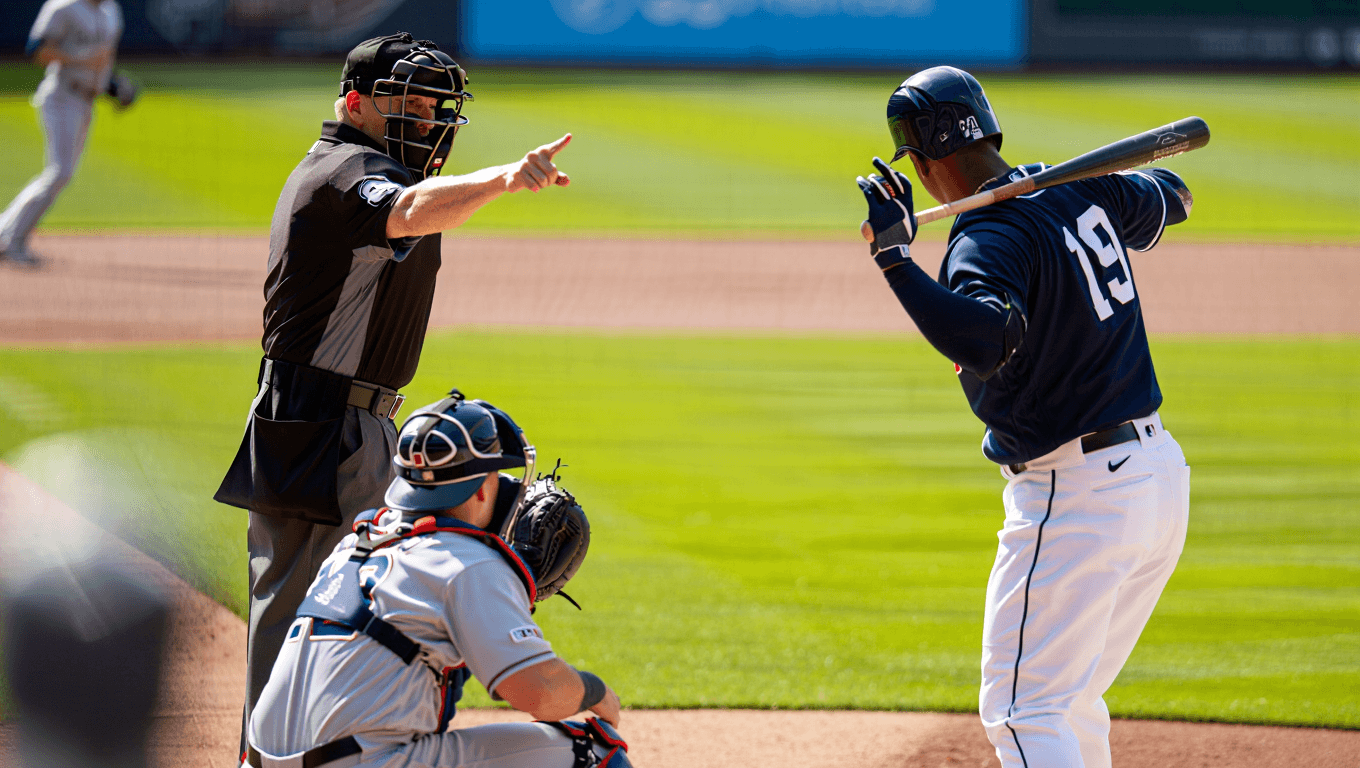Taylor Swift Blake Lively friendship officially ends after 10 years, no contact since Dec
Super bowl halftime show 2026 sparks outrage as NFL stands firm on Bad Bunny
Shock ripples across baseball as 2026 brings the Automated Ball‑Strike (ABS) system. The Joint Competition Committee voted on Sep 23, 2025 to adopt ABS full time for the 2026 season, a change that would have overturned at least one high‑profile October call and sent players into the dugout. Analysts and teams now face how robot-assisted strike review will reshape late innings, clubhouse behavior and strategy. Is this the end of contested postseason calls-or the start of a new controversy fans will debate all season?
What MLB’s 2026 ABS vote means for fans, teams and playoff drama
- MLB approved the ABS Challenge System on Sep 23, 2025; implementation: 2026.
- Padres players confronted umpires after a Game 3 strike call on Oct 3, 2025.
- Analysts say the Bogaerts called third strike in Game 3 likely would be overturned by ABS.
Why MLB’s 2026 ABS decision hits hard after the 2025 wild‑card controversy
The timing matters because the rule vote came less than two weeks after a widely shared postseason clip showed players confronting umpires at Wrigley Field. That viral moment crystallized fan anger about human strike zones and gave momentum to a long‑running league push for automated review. With ABS set for the 2026 season, managers and hitters must plan for a consistent electronic zone in high‑leverage innings, changing pitch selection and late‑inning strategy immediately. Could October drama turn into a 2026 tactical arms race?
How Players, Managers And Fans Reacted Within Hours Of The 2025 call
Wednesday season 3 renewed: Netflix confirms Jenna Ortega returns in 2027
Taylor Swift and Blake Lively’s friendship permanently ends after 10 years, no contact since Dec 2024
Video of Padres players following umpires through the dugout exploded on social feeds and forced instant debate about accountability and etiquette. Some veterans argued the confrontation crossed a line; others said it only proved why a uniform strike zone is overdue. The back‑and‑forth included heated social posts and pundit takes that kept the story alive into the next day. Which reaction carries more weight: protecting umpires or demanding perfect outcomes?
Yo holy shit #Padres reaction after the game to the umpires pic.twitter.com/Mw6475vUd2
— kyler (@padsfanatic) October 3, 2025
Data Points That Show Why ABS Won The Vote
A handful of public details help explain the committee’s choice and the public response. Statcast flagged the pitch at the center of the dugout confrontation as a 97.5 mph fastball that clipped the bottom of the zone – a textbook borderline call. A social post of the exit interaction recorded roughly 33.7K likes, amplifying fan outrage and putting visible pressure on decision makers. Those two datapoints – an arguable on‑field borderline call and viral engagement – created the political oxygen for ABS.
The numbers that change the game for automated strike review
| KPI | Value + Unit | Change/Impact |
|---|---|---|
| Joint committee vote date | Sep 23, 2025 | Approval leads to ABS full‑time in 2026 |
| Borderline pitch speed | 97.5 mph | Key called strike in wild‑card game |
| Viral post engagement | 33.7K likes | Amplified calls for rule change |
What This New 2026 Rule Means For Fans, Players And The October Heat
Expect fewer late‑game human zone controversies and more disputes about robot thresholds and calibration. Umpires will still manage the game on the field, but 2026 will bring fewer overturnable strike‑zone mistakes and more emphasis on analytics and pitch framing. Will fans accept another kind of controversy – debates about machine calibration and edge cases – or will ABS finally settle the arguments that boiled over this October?
Sources
- https://www.mlb.com/news/abs-challenge-system-mlb-2026
- https://www.si.com/mlb/padres/san-diego-padres-news/padres-confront-umpires-in-dugout-after-brutal-call-in-wild-card-game-3
- https://apnews.com/article/red-sox-yankees-score-chisholm-wells-mlb-playoffs-456e1a327ed6b0bdc70d44dd819d223b
Similar posts:
- “That’s Part Of The Game” Sparks Pitch-Tipping Debate In 2025 – What Changes Now
- NBA Reveals 36-Foot Heave Rule for 2025-26 – Why Shooting Stats Shift
- Heave Rule Reveals 36-Foot Cutoff In 2025, Here’s Why Player Stats Shift
- NBA Reveals Team-Only Heaves for 2025-26 – Why Shooting Stats Shift
- NFL Reveals 2025 Kickoff Shift – Returns Spike 75% And What Fans Should Expect

Jessica Morrison is a seasoned entertainment writer with over a decade of experience covering television, film, and pop culture. After earning a degree in journalism from New York University, she worked as a freelance writer for various entertainment magazines before joining red94.net. Her expertise lies in analyzing television series, from groundbreaking dramas to light-hearted comedies, and she often provides in-depth reviews and industry insights. Outside of writing, Jessica is an avid film buff and enjoys discovering new indie movies at local festivals.

